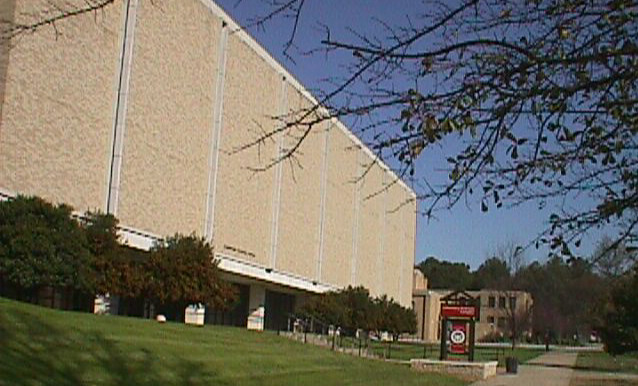
Department of Chemistry
and Physics
 |
Department of Chemistry and Physics |
| CHEM1003 |
Exam 2
|
Exam 2
Name_________________________
CHEM1003
Spring 1996
1. Define each of the following as either a homogeneous (H) or heterogeneous (T) mixture. (5 points) On exam 1 - not on this exam
A solution of KI in water ______
Sand and gravel ______
Shovel full of dirt ______
Oil and water ______
Spaghetti with meatballs ______
2. Fill in the blanks. (1 point each)
Column in Periodic Table is a group or ______________________
Row in Periodic Table ______________________
Another name for Group IIA _______________________
Another name for Group VIIIA _______________________
The atomic masses of the Periodic Table are based on what isotope? _________________________
List the two elements that are liquids at room temperature
_______________ and ______________
The identity of an element depends on the number of ____________
Who discovered protons __not on this exam______________________
What is the charge on the neutron ________________________
Who discovered the nucleus ____not on this exam________
Millikan determined the ___not on this exam___________ and ____not on this exam_______ of an electron
Atoms with the same atomic number but differing atomic mass are called ___________________
A chemical combination of two or more elements in a definite proportion is called a ______________________________
3. Several of the elements exist in nature as diatomics. Define diatomic
and give three examples with the correct formulas. (10 points)
4. Classify each of the following elements as Representative, Transition, Inner Transition or Noble Gas. (5 points)
a) Ce
b) Ho
c) At
d) As
e) He
5. Fill in the missing information. (20 points)
| Name | symbol | atomic number | atomic mass | protons | neutrons | electrons |
| tin | ||||||
| zinc | Zn | |||||
| boron | B | |||||
| cesium | Cs | 132.91 |
6. List the three parts of a chemical equation. (5 points)
not on this exam
7. Listed below are descriptions of either metals or nonmetals. Match A for metals and T for nonmetals. (10 points)
a) noble gases ______
b) ductile ______
c) brittle solids ______
d) strontium ______
e) halogens ______
f) nonmalleable ______
g) tend to gain electrons ______
h) opaque as thin sheets ______
i) hydrogen ______
j) transition elements ______
8. Name the following ions: (1 point each)
a) CN- _______________________________
b) CO32- _______________________________
c) SO42- _______________________________
d) PO43- _______________________________
e) MnO4- _______________________________
9. Give the formula and the correct charge for each of the following: (1 point each)
a) perchlorate __________________________
b) sulfide __________________________
c) nitrate __________________________
d) dichromate __________________________
e) hydroxide __________________________
10. Name each of the following: (10 points)
a) CCl4
b) Ag2SO3
c) P4O10
d) CaO
e) NH4F
f) CrI3
g) ZnF2
h) NH3
i) SO3
j) FeCl2•2H2O - not on this exam
11. Give the formula for each of the following: (10 points)
cobalt(II) chloride -
beryllium(II) oxide -
arsenic trichloride -
magnesium chloride -
chromium(III) oxide -
tetrasulfur triphosphide -
gold(III) cyanide -
manganese(II) sulfate -
cupric carbonate - not on this exam
calcium nitrite -